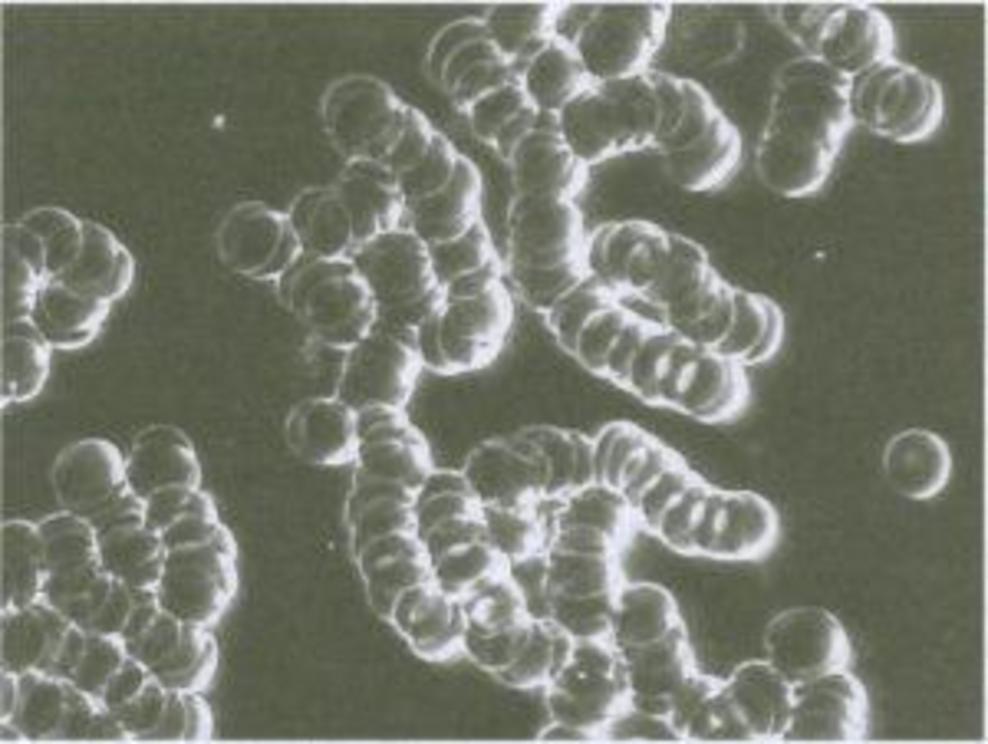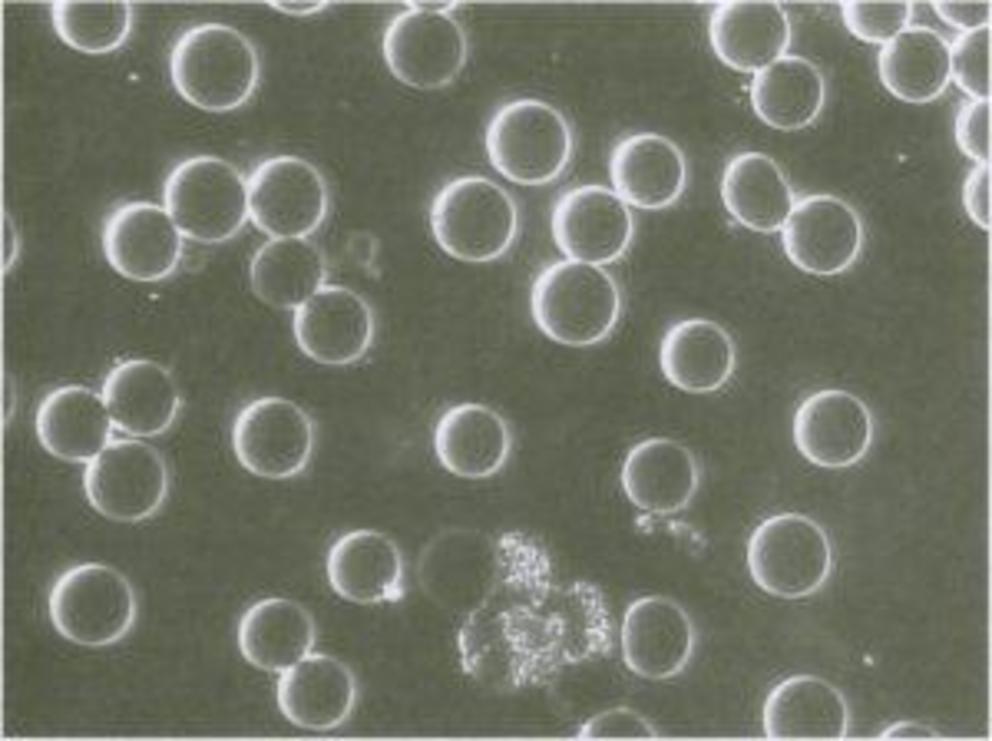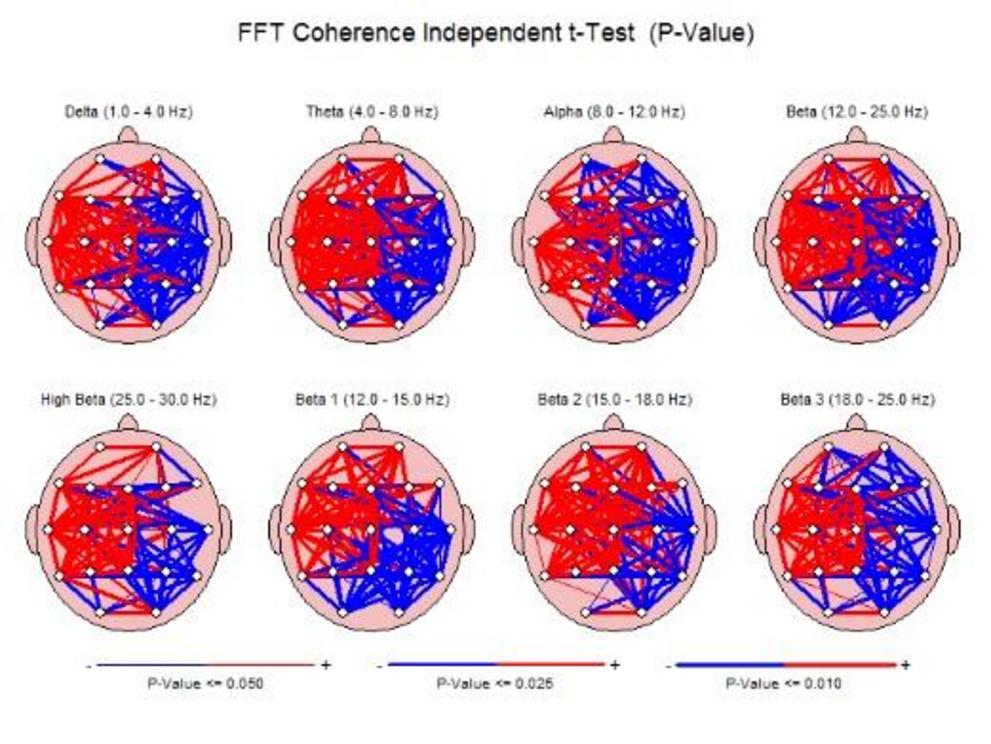The self-healing revolution – energy psychology explained
In every culture and in every medical tradition before ours, healing was accomplished by moving energy.—Albert Szent-Gyorgyi, Nobel laureate in Medicine
Better Ways to Heal Through Energy Psychology
A self-healing revolution is upon us and it turns the standard Western healing model on its head, putting the patient back in the driver’s seat, not only making them an active participant in their own healing, but moving beyond the band-aid solutions that pervade mainstream psychiatry and psychology.
The current paradigm shift presupposes that, with the right approach, just about anything can be healed or reversed, and that a pain- or drug-addled existence of managing symptoms and eking by is no longer the best option, nor a fait accompli.
This is the revolution that Big Pharma and institutional psychiatry hope you never hear about.
The emergence of energy psychology (EP), including methods such as EFT (emotional freedom techniques), TFT (thought field therapy), Psych-K, and Matrix Reimprinting (to name a few) means that, for millions of people suffering from phobias, self-limiting beliefs, or even major emotional and/or physical traumas, expensive and often ineffective traditional therapies can be eschewed (bypassed) in favour of more affordable (or free) and very often spectacularly successful “new” methods—that can achieve better results in a fraction of the time.
What is Energy Psychology?
Energy psychology describes a collection of novel psychological interventions that “balance, restore, and enhance human functioning by stimulating the human subtle energy system,” which includes the acupuncture meridian system, chakras, and nadis. “These techniques…have been observed to catalyze rapid, dramatic, and lasting changes in feelings, beliefs, mental states, and behaviors,” as well as physiology and biochemistry. Thus, EP techniques involve “stimulating energy, whether by tapping, touching, or intention.”[1]
EP therefore traces its roots not just to Chinese medicine and qi gong, but also to the work of modern pioneers such as chiropractor and founder of applied kinesiology George Goodheart, Australian psychiatrist John Diamond, and Thought Field Therapy founder Roger Callahan.[2]
In short, EP modalities use both psychological interventions and energetic interventions together.[3] The result is something far greater than the sum of the parts: EP techniques offer a uniquely powerful way to address and heal the subconscious mind from which around 95% of our thoughts and behaviour originate (and this, in turn, leads to physical healing and resoration).
Cognitive neuroscientists estimate that our conscious minds contribute roughly a mere 5% of our cognitive activity, meaning that the vast majority of our actions, emotions, decisions, and behaviours result from the unobserved workings of the subconscious.[4] Consider the sobering fact that during the first six years of life, most of our beliefs about ourselves and the world are formed and adopted into our subconscious quite passively, according to what we experience and observe—all before we have developed critical thinking faculties that would allow us to reject self-defeating notions before we adopt them as beliefs that then shape our thoughts and actions, and the kind of lives we lead.[5]
EFT and TFT
For psychological issues rooted deeply in intense emotion (more so than at the mental level), EFT, TFT, and Matrix Reimprinting (which developed from EFT) may be more effective more of the time than virtually any other therapies. Scientific research combined with voluminous anecdotal reporting suggests monumental potential for future applications of EFT and TFT.
Developed in the 1990s by Gary Craig, EFT arose from TFT (Thought Field Therapy), which was developed by Dr Roger Callahan and articulated and popularized by him through the 1970s and 1980s. What Callahan did was make the serendipitous discovery that tapping on a sequence of acupoints (acupuncture points) on a female client with an extreme phobia of water produced profound relief and resolution—far beyond what an educated Western medical professional could ever have hoped based on their knowledge at that time (and for those stuck in the mainstream allopathic mindset this largely still holds true).
Callahan’s client could not even look at water without acquiring a splitting headache, and because the approach of systematic desensitization was making so little inroad into the problem, Callahan changed tack and tried tapping on acupoints instead (a method from applied kinesiology). After only 1 minute of this, the woman knew immediately—without Callahan even needing to test her—that her fear was gone.[6]
From this initial epiphany Callahan went on to develop an elaborate and complicated system of specialised algorithms—each custom-designed to treat a particular problem, and to this day insists that the body’s energy fields respond differently to different tapping sequences (which is probably true), and thus, for maximum results each malady requires its own condition-specific tapping algorithm. Callahan has a list of professional advocates with impressive credentials who rave about the wonders they have seen TFT work.[7]
The story gets more interesting, however, when Gary Craig enters the picture. Craig was one of Callahan’s students many years ago, at a time when Callahan was charging individuals a whopping $100,000 each to learn TFT. Craig—having paid the money and learned under Callahan—simply asked himself whether such amazing results could be obtained through simpler, easier-to-apply and essentially random tapping sequences (rather than specialised algorithms). So Craig tested his hypothesis out and, sure enough, the results he got were impressive. No matter the order in which Craig stimulated the acupoints on his subjects, significant therapeutic benefits were obtained. Craig decided that the world needed this information, and thus he began giving his knowledge and methods away to the public for free.[8] Thus, EFT was born into the world. Condition-specific tapping algorithms and hefty tuition fees be damned.
EFT’s bread and butter involves repeatedly tapping a selection of acupoints whilst tuning in to the feelings (and even the colour/s and textures) sensed in the body that are stemming from a particular memory, unpleasant current emotion, or old trauma. The idea is to decrease the intensity of the sensation down as close to zero (on a scale of zero to ten) as possible, zero being complete resolution (no emotional charge) and ten being maximum intensity. (This “subjective units of disturbance/distress” [SUDs] self-reporting scale was developed by psychologist Joseph Wolpe in 1958.)
In short, energy psychology techniques such as EFT and TFT systematize the use of acupoints into a structured stress and trauma reduction routine—and unlike pharmaceuticals, they actually heal.

Shockingly Good Results
In 2003 a scientific study by the Australian psychologist Dr Steven Wells et al., detailed phenomenal success in using EFT to treat clinically diagnosed phobias of small animals such as snakes, spiders, bats, and mice. The pre-EFT intensity of the phobias were measured by taking into account several factors: increases in pulse rate while contemplating the feared object; the number of steps they could walk towards the feared creature; written stress questionnaires. Subjects were then briefed for half an hour on the treatment method, including receiving a brief EFT session.
The subjects then had their phobias tested again. On every measure fear had dropped dramatically, and some subjects could even walk right up to the animals that had normally triggered phobic reactions.
One woman with a previously crippling fear of cockroaches followed her 30 minute EFT session by immediately walking into the nearby room harbouring a cockroach in a jar, picking it up and examining it closely. She found that her newfound confidence and self-esteem permeated all areas of her life. Six months later, a follow-up study showed that subjects still had much reduced phobic reactions to the objects of their fear—a truly remarkable result. This study was later replicated by Harvey Baker’s research team of New York’s Queen’s College.[9]
Numerous studies in energy psychology have repeatedly shown its potency, evincing the ability not just to reduce or eliminate phobic responses but pain and anxiety too. In fact, the medical implications and potential applications are astounding.
Another study involved taking brain scans of subjects with generalized anxiety disorder. Anxiety and depression, for instance, have specific electronic signatures. EEG readings of participants’ brains taken through twelve energy psychology sessions show enhanced wave-frequency ratios and less dysfunction, especially in the frontal lobes (which are involved in higher mental functions, including humour appreciation, personality, self-awareness, and emotions in general[10]).
Subjects’ brains which were treated simply with antidepressants showed no such improvements, and the group treated with the more widely known cognitive behaviour therapy (CBT) required more sessions to achieve similar results to the EFT group, and the effects were not as durable, as revealed by a one-year follow-up.[11]
In further support of these findings, in February 2013, Dr Dawson Church et al. reported the results of a study of 59 US veterans with clinically diagnosed (severe) post-traumatic stress disorder (PTSD). These were published in the respected Journal of Nervous and Mental Disease. In this randomized controlled study (the “gold standard” of scientific research), 30 veterans in the EFT group received 6 separate 1-hour-long EFT sessions (concurrent with standard care), while the control group (n = 29) received no EFT treatment. Measures of the breadth and severity of psychological distress for veterans in the EFT group plummeted. After 6 sessions, fully 90% of the EFT group no longer qualified as having PTSD—an incredible result. In contrast, a month after the initial tests, only 4% of the control group no longer registered as having PTSD. After the wait period, the control group then also received EFT. Again the results were stunning, with huge drops in clinical symptoms.
For the 49 subjects (of the original overall sample of 59 participating veterans) who actually did receive EFT treatment in the end, fully 80% of them remained free of manifest PTSD symptoms (they were “subclinical”) 6 months later. Church reported:
This is the best result for PTSD ever obtained in a clinical trial for any therapy.[12](emphasis added)
To put this in perspective, many traditional therapists wrongly believe that PTSD is incurable.
In fact, EFT’s more complicated “big brother”—TFT—has achieved results at least as remarkable. A volunteer team of EP practitioners who travelled to Kosovo to treat survivors of the Serbian massacre using TFT were able to report that remaining survivors experienced complete recovery from “the post-traumatic emotional effects of 247 of the 249 memories of torture, rape, and witnessing the massacre of loved ones” which were treated. Kosovo’s surgeon general wrote in glowing terms of the achievements of the international EP team, lauding their efforts. Additionally, in formal follow-ups at an average of 5 months later, all those treated remained free of relapse.[13]
Overall,
Treatments by international teams working with post-disaster victims in Kosovo, Rwanda, the Congo, and South Africa tallied the treatment outcomes of 337 individuals (Feinstein, 2008). Treatment focused on reducing severe emotional reactions evoked by specific traumatic memories [such as those in the above Kosovo study]. Following the energy psychology interventions, 334 of the 337 individuals were able to bring to mind their most traumatic memories from the disaster and report no physiological/affective arousal. Twenty-two traumatized Hurricane Katrina care givers…reported a reduction [on the SUDs scale] from a mean of 8.14 to 0.76 on 51 [emotional] problem areas [after one 15-minute EP session]…[14]
Along with drastic improvements in emotional maladies, it is true that many physical symptoms also spontaneously improve or vanish through the use of EP. Darkfield analysis by one doctor of a patient’s live red blood cells showed significantly decreased clumping of red blood cells immediately following the use of EFT, as compared with the obvious clumping seen beforehand. (See Figure 1.) Red blood cell clumping is problematic because it means less surface area for oxygen from the lungs to bond to the cell surface for transport around the body. Hence, more spacing between red cells is ideal for maximising oxygen uptake. The bottom image was taken a mere 12 minutes after the initial image. Only 12 minutes and 2 rounds of EFT with the conscious intent of producing an even cell distribution was required to produce this effect. In contrast, if red cell clumping can even be reversed at all using mainstream allopathic methods, it normally takes months.[15]
On top of that, the conventional medical mindset denies that intention can produce such striking effects on typically unconscious physiological processes, thus further disempowering millions of people around the world.

 Figure 1. Top: Red blood cell clumping before EFT. Bottom: Red cells evenly distributed after 12 minutes of EFT. Source: D. Church, The Genie in Your Genes, p 235. (Originally obtained by Church in 2009 from www.emofree.com.)
Figure 1. Top: Red blood cell clumping before EFT. Bottom: Red cells evenly distributed after 12 minutes of EFT. Source: D. Church, The Genie in Your Genes, p 235. (Originally obtained by Church in 2009 from www.emofree.com.)
The list of physical complaints and symptoms that have reportedly been remedied or reduced with EFT is virtually endless: PMS, lupus, failing eyesight, headaches, allergies, carpal tunnel syndrome, cancer, MS—you name it.[16]
At the 13th International Energy Psychology Conference held in Reston, Viriginia (2011), it was reported that then-current research was additionally demonstrating the effectiveness of EP on “test anxiety, food cravings and weight loss maintenance, public speaking anxiety, optimal test performance, and psychosomatic conditions such as psoriasis, tinnitus, and fibromyalgia.”[17]
The day when EFT gains widespread mainstream appeal and acceptance is edging ever closer. In November 2012, the American Psychological Association (APA) accepted and published a summation of validated studies by ACEP showing the effectiveness of EFT—a reversal of the position held by the APA for the previous 13 years in which it refused to acknowledge EFT’s effectiveness.[18]
Matrix Reimprinting
Matrix Reimprinting (MR) is an outgrowth of EFT and was developed by EFT Master Karl Dawson. It too is producing some extraordinary healing results in diverse areas.
The basic premise of MR is that we all exist in a unified field (the “Matrix”) and that when our psyche is traumatized, part of it dissociates/splits off and lingers in the Matrix, essentially remaining as a version of oneself that is frozen in time, never growing older. This entity is an “ECHO” (Energy Consciousness Hologram). (Shamanism agrees that this splitting/dissociative process occurs under trauma, and seeks to resolve the problem through “soul retrieval.” Spirit Release Therapy, on the other hand, uses hypnosis to locate dissociated parts of the psyche and reintegrate them.)
To be more precise, the ECHO inhabits your psyche in an unintegrated fashion, lingering as what is now effectively a separate traumatized version of you stuck in “time.” (In trauma-based mind control programs such as Monarch and MK Ultra, these separate personality constructs are known as “altars.”)
MR uses a variation of a fundamental technique from EFT to help heal and reintegrate ECHOs, known as the Movie Technique. In MR, however, as practitioner Caroline Paulzen (sister of MR founder Karl Dawson and the sole MR trainer in Australia) explains, as you run the “movie” of your traumatic memory in your mind, you can stop it and interact with your ECHO within the memory, “stepping into the picture and tapping on your ECHO using the EFT protocol (whilst physically tapping on yourself in the present).”
From here you can collaborate with the ECHO to assist them in reprogramming the memory into a more pleasant and acceptable one. The ECHO is given the chance to have a less traumatic, more positive emotional experience which will replace the old trauma stored in the subconscious.[19] This creates and activates different neural pathways in the brain from those associated with the original trauma.
Thus, MR combines the physical tapping used in EFT with a “virtual tapping” occurring at the mental-emotional level in order to directly address the “virtual entities” dubbed ECHOs inhabiting the subconscious mind.
As with EFT, MR is known to effect healing for a vast array of painful memories and psychosomatic symptoms arising from them, including allergies. Dawson’s book Matrix Reimprinting Using EFT, co-authored with Sasha Allenby, features various case studies in which profound healing has taken place through MR. In fact, Allenby cured herself of over 20 allergies through EFT and MR.
The authors also include the story of a woman named Jenny who had a mysterious and life-threatening allergy to coffee: “Even the slight smell of coffee would send Jenny into extreme paralysis becoming speechless, unable to move any part of her body and liable to lose control of her bowels and bladder.”
Dawson and Jenny managed to trace the roots of this extreme allergy to a time in her life when she had been viciously beaten and verbally abused by a man she was in an abusive relationship with. However, it wasn’t the attack itself that triggered the allergy. Following this event, she was sent to a safe house to protect her from her partner. Here, she was around people continuously drinking coffee. Thereafter, the smell of the coffee in the present would trigger her fear and trauma from that dangerous time of her life, which she had subconsciously associated with coffee, thus creating the allergy.[20]
“What tends to happen,” says Dawson, “is that if a person is eating a food at the same time that something stressful happens, the body associates the food with danger or stress, and starts rejecting it as dangerous…Issues such as these are easily resolved with Matrix Reimprinting and the allergies disappear.”[21]
Even more interesting to me is the way that someone’s basic eye-brain perception (construction) of the world can be fundamentally altered through the resolution of old trauma and reprogrammed beliefs—our beliefs literally shape and inform our raw perception of the world. In short, we “see” our neurology, not reality as it is.
I have seen an amazing example of this with a friend of mine who stated after targeting a particular ECHO with MR that somehow the city she was living in seemed bigger and more open; less claustrophobic. She was no longer plagued by an irrational tendency to burst into tears simply from driving on the roads in familiar suburbs. Her subconscious mind had clearly learned over the course of many years of traumatized life (starting as a small child) to associate virtually the entire city with fear, dread, danger, and the need to escape, and yet MR completely resolved this problem in very little time.
MR also (through the use of many self-applied sessions and several working with Caroline Paulzen) resolved for my friend—by about 90%—a problem with disordered eating in which her throat would close and force her to gag and be unable to swallow solid food. On her worst days she even struggled to drink water through a straw and her weight dropped dramatically, but multiple MR sessions over a period of months brought her back to being able to eat or drink virtually anything with ease the majority of the time. She states that it saved her life where nothing else (not even regular EFT) was helping.
Psych-K: Enter the Woo
Psych-K (PK) was “created” (or should we say “downloaded”?) by former businessman-cum-kinesiologist Rob Williams in 1988. It utilizes the mind-body interface of muscle testing (kinesiology), as well as left-brain/right-brain integration techniques to trigger rapid and lasting psychological changes by selectively replacing self-limiting programs/beliefs running in the subconscious mind with more positive and constructive ones, while facilitating a whole-brain state.
Williams didn’t so much “develop” Psych-K as experience it in a vision in his mind’s eye, in a moment of frustration and rage (at himself). Rhetorically asking “God” what he was supposed to do, Williams was surprised to immediately find himself perceiving mental imagery in the form of a scroll containing what would become the PK technique. Sensing the importance of this new information, Williams ran back to his computer and proceeded to type it all out. Thus, the PK protocols entered the world.[22]
Though it appears that Psych-K has not been as extensively tested in scientific scenarios as some other modes of EP, there is no shortage of positive reports from facilitators and clients—as well as endorsements from cell biologist and author Bruce Lipton. Until 1990, Lipton had not fully realised the power of the subconscious mind and the crucial role it played in the process of psychological change. After experiencing how efficient Psych-K is as a brain and belief change tool, he became a vocal advocate.[23]
I will share a Psych-K story I was able to witness up close. I have a friend who long had difficulties retrieving information in the form of words on a page or screen—from since she was a child, in fact. Her eyes would dart about randomly, preventing the attainment of any meaning from the semantic structures in front of her. The resulting inability to retrieve information by reading was a source of bruised self-esteem and contributed to her belief that she was “dumb.” Thus, following her attendance at a PK facilitator course over a weekend in September 2012, my friend—aged 35—performed a PK “balance” on herself. The affirmation she used (a widely known one) was simply: “I am a genius and I apply my wisdom.” (You may have heard John Demartini share it.)
The process took a mere handful of minutes—long enough that she felt something shift inside, at which point the process is considered to be complete (this part of the process is highly subjective). Quite simply, after this balance was performed, my friend was immediately able to look at words and sentences without her eyes darting uncontrollably around the page they were on. She could actually read and retain the information—something she had not done with ease for longer than she could remember.
One of the other interesting aspects of PK is that it can be applied remotely through the process of “surrogation,” defined by Williams as “a process based on creating a ‘link up’ between the subject’s Higher Mind (Superconscious Mind) and that of a willing surrogate.”[24] The surrogate may be the PK facilitator or another willing participant—the results are the same. The fact that facilitator and client may be far removed physically and the facilitator (or someone else) taking the place of the client means nothing in a completely nonlocally integrated universe in which all parts of the whole are connected. It is also worthy of note that one can act as a surrogate for their own inner child or “ECHO.”
Preliminary research into brainwave changes through Psych-K techniques (including surrogation) was carried out in early 2010 by Dr Jeffrey Fannin, Founder and Executive Director of the Center for Cognitive Enhancement, in collaboration with Rob Williams. Fannin is board certified in neuropathy and has been “devoted to the complex practice of mapping and analyzing the brain and training it for optimal health and performance” for around 14 years.[25]He collaborated with Williams in an effort to determine whether EEG could be used to quantitatively map brainwave changes resulting from PK.
Initially, Fannin used EEG to scan his own brain both pre- and post-Psych-K and found what he termed a “major shift in energy” at 1 Hz in the Delta range and at 14–17 Hz towards the lower end of the Beta region. Following these scans, Fannin performed a complex independent t-test involving millions of data points and constructed brain maps of his pre- and post-Psych-K states. (Figure 2)
Given the marked differences in “before” and “after” scans, Fannin felt there was clearly something to the Psych-K phenomenon and decided to see what would happen using surrogation with remote participants. Fannin first scanned Williams before and during Psych-K surrogation, and then used several volunteers at his Glendale, Arizona clinic, who wanted to experience the surrogation process as recipients. On all occasions the pre- and during Psych-K brain maps show marked differences in brainwave activity patterns.
Fannin states that “it is clear that there is some phenomenon present that is unique, consistent and measureable with a high degree of accuracy and statistical relevance…Now there is concrete scientific validation that the changes are actually occurring in the brain!”[26](emphasis in original)
This was and is just as much the case for surrogation involving far removed recipients where the facilitator is effectively substituting for them and performing the procedure on themselves on the recipient’s behalf as it is for Psych-K done in person without surrogation. The facilitator’s, surrogate’s, and recipient’s brains are entangled and bound as one nonlocally integrated system. All that is needed is the intention to connect in such a way (as I show in my book The Grand Illusion).
In August of 2012, Fannin and Williams had a research paper published in the International Journal of Management and Business in which they detailed the successful application of PK techniques in the business/corporate arena. They had documented 125 cases over 12 months in 3 different locations with significant results at less than 1% chance.
Here I present the “before” and “after” t-test image resulting from the EEG scans of a female office manager with over ten years experience in the role (Figure 2). Prior to the PK balance, her neural activity (in red) was very much oriented in the left hemisphere. Her management style was “my way or the highway,” she was demanding and prone to outbursts of uncontrollable anger towards her subordinates, strictly logically oriented, and lacked empathy.
After the PK balance, the dominant pattern (in blue) reveals access to the right “emotional” hemisphere. Resultantly, her consideration of others improved, and her interpersonal relationships both in the office and at home also improved. Her leadership abilities flourished as she shifted to a more balanced and integrated “whole-brain state” and she became well liked; the office ran better, with increased efficiency and productivity. 98% of the individual cases in this study yielded statistically significant correlations demonstrating the difference between the pre- and post-PK intervention brain states.[27]
 Figure 2. T-tests show the difference in brain states between pre- (red) and post-PK (blue) intervention in a female office manager
Figure 2. T-tests show the difference in brain states between pre- (red) and post-PK (blue) intervention in a female office manager
Billions to be Saved: Economics and Epigenetics
The costs of health care could be massively diminished through a wider use of EP modalities. Another study that tracked the clinical outcomes of 714 patients treated by seven therapists using TFT in an HMO setting found that the resulting decreased subjective distress was far beyond chance for 31 of 32 psychiatric diagnostic categories including anxiety, major depression, alcohol cravings, and PTSD. Church states that if such therapies were available as a part of routine treatment, the savings from the cost of alcoholism and depression alone would far outweigh the costs of EP treatments.[28]
Potentially, major international or factional conflicts could be defused at the scale of individuals and small groups before they ignite to engulf entire cities and countries.
In an editorial in Energy Psychology Journal, Church further elaborates on the potential socioeconomic benefits of a wider employment of EP practices, stating that a projection of results from multiple studies into depression, anxiety, pain and PTSD, “suggests that [America] would save at least $65 billion annually by adopting EP interventions in primary care.”[29] (emphasis added)
EP practices have a habit of working where nothing else will—and that is in fact the unofficial motto for EFT.
Profit-driven pharmaceutical companies—whose business models are geared towards perpetual disease management—stand to lose a lot of business in the long run as we embrace EP, and the benefit to society from healing millions of the “walking wounded” around the world will be incalculable. Health care costs will dive and billions of dollars will be saved and redirected elsewhere, and that’s just the beginning. The incidence of otherwise inevitable diseases that could be nipped in the bud well in advance of the advent of physical symptoms using EP is huge. Disease-induced suffering can be slashed and the collective quality of life quotient increased significantly.
Epigenetics has shown us that our genes are constantly responding to various forms of environmental stimuli, including emotional distress (as well as movement, touch, mental activity, sleep-wake cycles and more). “As well as many genes being involved in most changes of state, different genes are often involved in different time periods of that change of state…[F]rom second to second, genetic cascades are turned on or off by our experience.”[30]
For example, a team of researchers investigating the epigenetic effects of relaxation at Harvard Medical School showed that individuals who were taught over 8 weeks to deliberately elicit the relaxation response (RR) thereby changed the expression of over 1,500 specific genes as compared with their status prior to RR training. The subjects were given RR training, background information on the RR and the stress response it is used to ameliorate, and listened to a RR-eliciting CD on average for 17.5 minutes per day.[31]
These kinds of behavioural state-related epigenetic shifts may go a long way to explaining why, for example, someone diagnosed with “terminal” cancer who decides to treat themselves by doing something as simple as watching their favourite funny movies and TV shows for hours every day could actually succeed in healing themselves through laughter, as in at least one case I came across years ago.
Such self-directed epigenetic shifts as those seen in the Harvard research offer empirical evidence of the value of EP interventions in favourably modulating genetic expression to counteract (or prevent) undesirable psychogenic epigenetic changes, and thus slashing the risk of many diseases. (Roughly 95% of disease is not hereditary, but environmentally triggered.)
The promise of EP is truly vast. The revolution is upon us.
For full references please use source link below.

